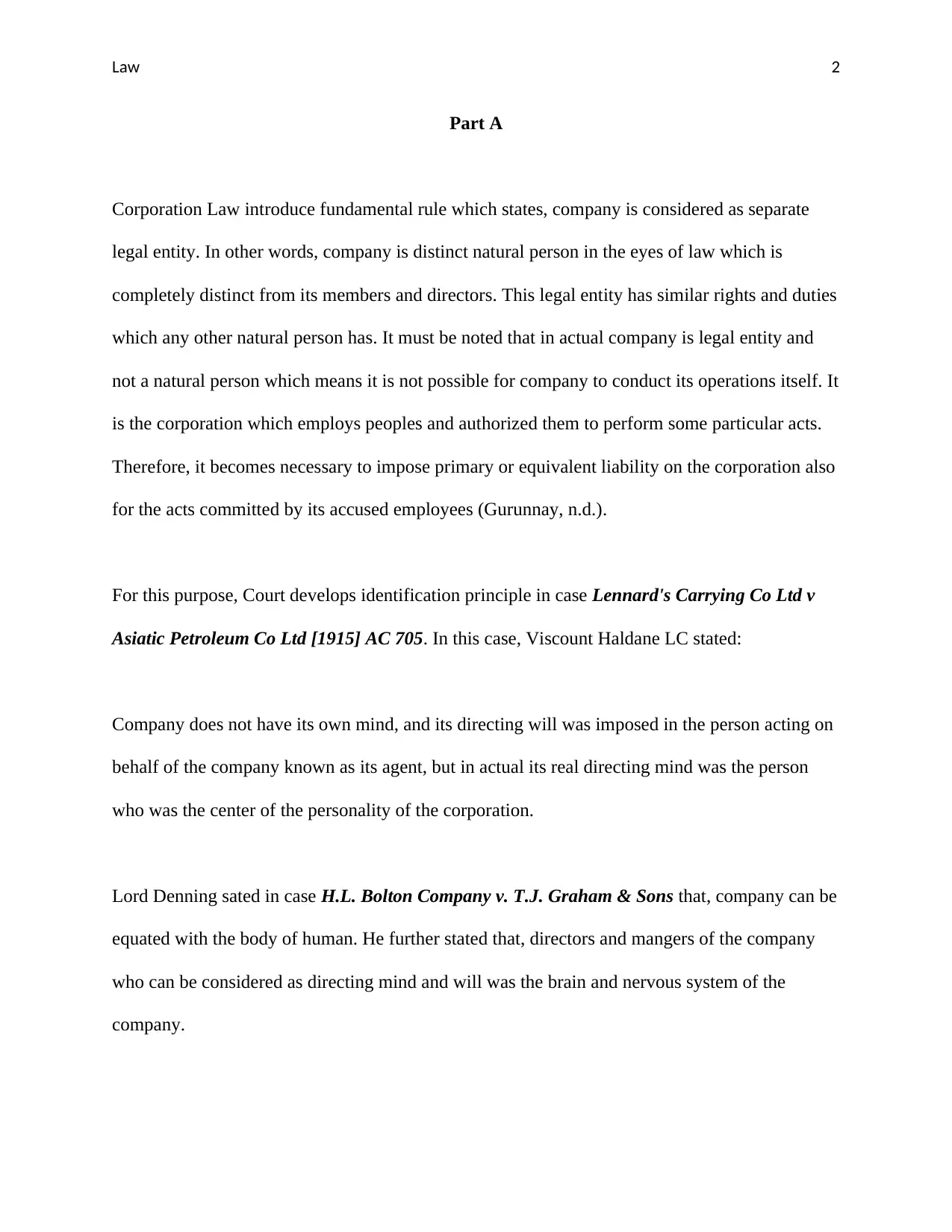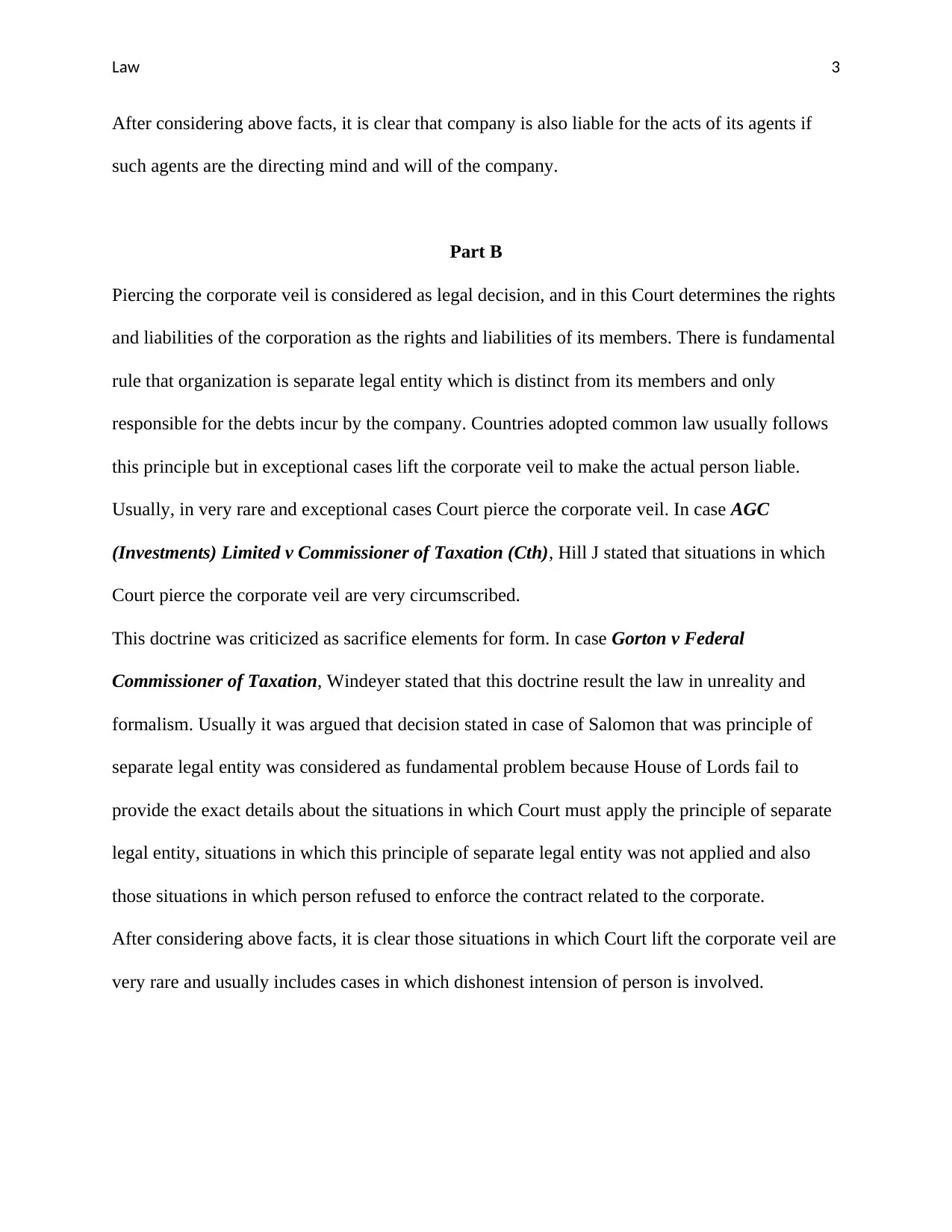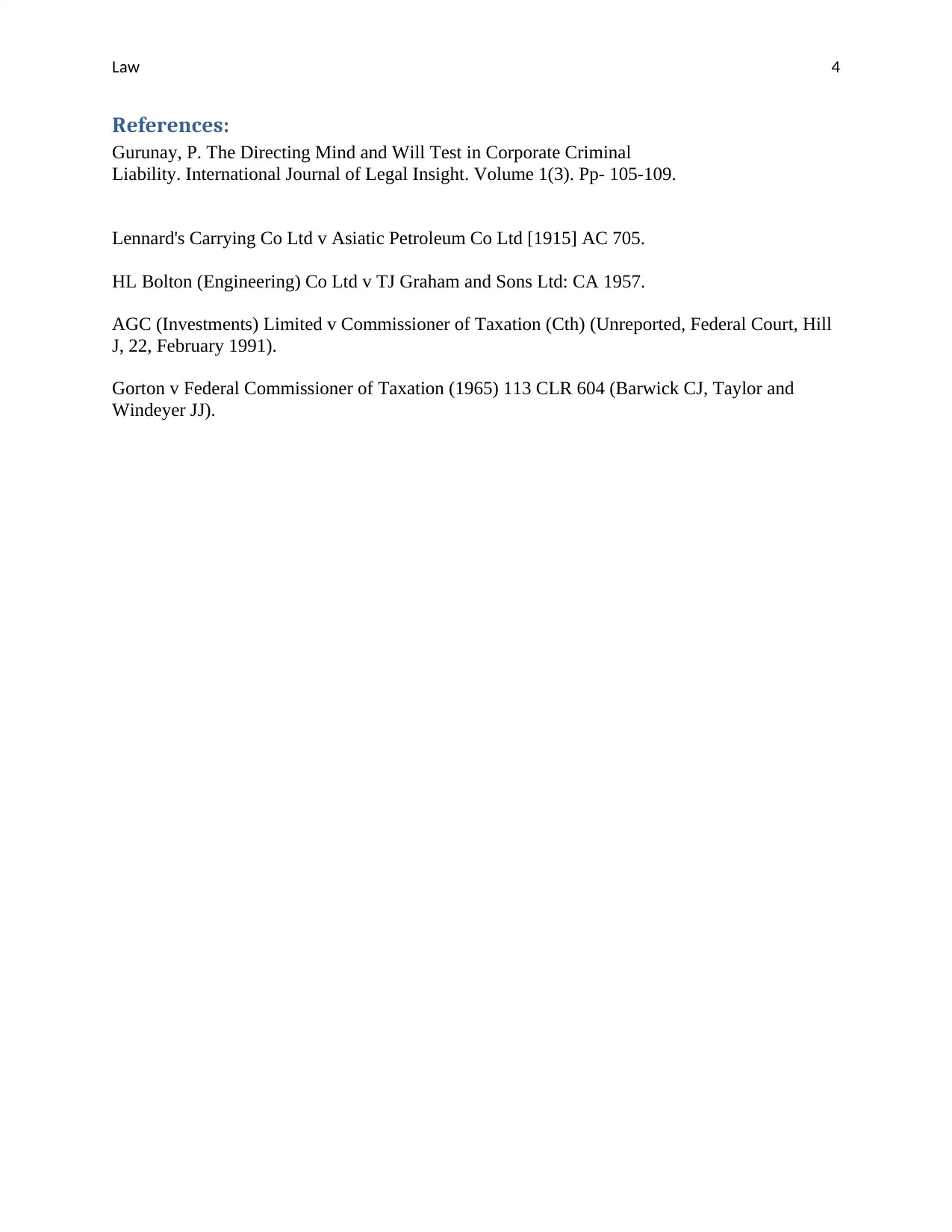Law Assignment: Corporate Law Principles and Veil Piercing Analysis
VerifiedAdded on 2020/03/28
|4
|695
|190
Report
AI Summary
This report delves into the core principles of corporate law, beginning with the foundational concept of a company as a separate legal entity, distinct from its members and directors, with the same rights and duties as a natural person. The report explores the 'directing mind and will' test, as established in the case of Lennard's Carrying Co Ltd v Asiatic Petroleum Co Ltd, and further developed in H.L. Bolton Company v. T.J. Graham & Sons, which clarifies when a company can be held liable for the actions of its agents. The second part of the report examines the doctrine of piercing the corporate veil, a legal decision where courts disregard the separate legal entity status to hold members liable, which is a rare occurrence, usually reserved for cases involving dishonest intentions. The report references key legal cases such as AGC (Investments) Limited v Commissioner of Taxation (Cth) and Gorton v Federal Commissioner of Taxation, to illustrate the application and limitations of these principles.
1 out of 4











![[object Object]](/_next/static/media/star-bottom.7253800d.svg)